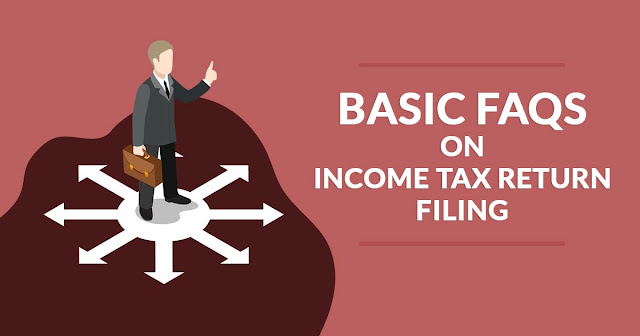Why Do We Need to File ITR?
A mandatory ITR filing requirement applies to all salaried individuals whose combined income exceeds the baseline exemption level. These are some of the often-asked questions that citizens have regarding basic income tax issues.
Income Tax: What Is It?
Every person's income is subject to income tax, which is a tax imposed by the Indian government. The Income-tax Act of 1961 contains the rules controlling income tax.
Who is Responsible for Paying Taxes?
Everyone who is a "person" must pay income tax. The term "person" includes both real and made-up people in its scope.
Hindu Undivided Families (HUFs), Associations of People (AOPs), Bodies of Individuals (BOIs), companies, Limited Liability Partnerships (LLPs), corporations, local heads, and other artificial legal entities not covered by any of the aforementioned are all regarded as individuals. As a result, any artificial entity, in addition to a natural person (an individual), is liable to pay income tax.
What Does the Income-tax Administrative Structure Look Like?
The Ministry of Finance is in charge of managing the government's income operations. The Ministry of Finance's Department of Revenue has entrusted the Central Board of Direct Taxes (CBDT) with the responsibility of administering direct taxes including income tax, wealth tax, etc.
The income tax department is tasked with enforcing direct tax rules while the CBDT handles crucial inputs for direct tax policy formulation and planning. As a result, the CBDT is in charge of and responsible for overseeing the administration of income tax legislation.
What Method Does the Government Use to Collect the Tax?
From the below-mentioned methods, the government would collect the tax.
- Voluntary payment by taxpayers into various designated banks
- Taxes deducted at source (TDS) from the income of the receiver
- Taxes collected at source (TCS)
What Duration Would be There to Consider the Income of the Individual for the Income Tax?
On the yearly income of the individual, an income tax would get charged. From 1st April to 31st March of the subsequent calendar year, the duration of income tax law runs. The year is divided into two categories under the Income Tax Law: Assessment Year and Previous or Current Financial Year.
The income made is said to be as the former year or the current fiscal year and the year where the income levied to tax would be said to be as the assessment year.
For instance, the income made in the duration of 1st April 2022 to 31st March 2023 would be qualified as the income of the former year 2022-23. The former year 2022-23 income shall get levied to tax in the subsequent year i.e in the assessment year 2023-24.
Read also: 12 Common Questions While Filing Income Tax Return (FAQs)
What Do the Term Exempted Income and Taxable Income Denote?
The income levied to tax would say to be taxable income. While the exempted income does not levy tax would be said to be the exempt income. The income tax law allows the exemption from tax to this income.


Comments
Post a Comment